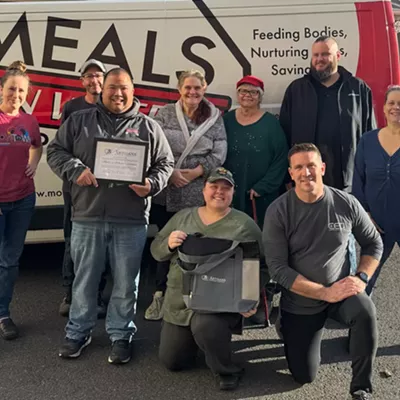The hunt is on for health care providers to attend to a burgeoning population of patients in Washington. More than 400,000 people have signed up for free or low-cost insurance through the Washington Healthplanfinder website as of mid-March, and more than 100,000 accessed private health insurance as well.
One way to spread the work of providing health care for everyone — whether they're newly insured or not — is for pharmacists to "practice at the top of their license." In Washington, pharmacists already have the authority, generally in conjunction with a physician, to offer short-term, immediate treatment for 21 minor ailments and conditions, from treating pinkeye to urinary tract infections. Now they hope to begin offering those services to patients at local drugstores throughout the state.
The end goal is increasing access to care for minor conditions, allowing doctors to have the flexibility to focus on more complex situations that arise with patients.
Linda Garrelts MacLean, a pharmacy professor at Washington State University, has been involved on both state and national levels in the push to develop new protocols broadening the scope of pharmacists' practice.
"There are officials who believe we can't solve our health care challenges without utilizing all hands on deck," MacLean says. "The goals of health care reform are to improve health. And oftentimes you improve health by making sure someone has access to people who can help them ... We can't have all these people seeking out primary health physicians. There just aren't enough to go around."
It seems like an easy fix. Doctors are on board, pharmacists are on board and patients are on board. But insurance companies are not. Right now, direct care from pharmacists is a cash-only system. MacLean says she's working with a team on a pilot project that would make it possible for pharmacists to bill insurers for each of these encounters, but that could be a ways off.
"The primary barrier, right now as it exists, would be that the insurance companies have a system in place that doesn't allow for pharmacists to bill under the same code as other health care providers," she says. "So right now the system excludes the ability for pharmacists to bill insurance companies." They can, however, bill patients up-front for their services.
Beverly Schaefer is a pharmacist in Seattle who's been working with patients this way since April 2013. She sees about 10 patients a month and charges them a $35 fee to do things like treat animal bites and uncomplicated urinary tract infections. The process generally takes no more than 15 minutes, she says.
Sometimes the patients don't have their own doctor or insurance. Others have both, but find accessing care easier at the pharmacy. "If you offer a service that they want and they value, they are willing to pay cash," says Schaefer, who owns Katterman's Sand Point Pharmacy in Seattle, where she is the only pharmacist with prescriptive authority. "If it means the difference between taking a half day off work, losing that money and spending all your time in a waiting room, versus coming in for a quick consultation, people are going to go for it." In her experience, people haven't complained about the fee because in most cases, it's close to the copayment they'd pay to see to a doctor. After she offers treatment, Schaefer notifies the patient's doctor about the care they received.
MacLean says pharmacists working with physicians in a "collaborative drug therapy agreement" ultimately allows both to take better care of their mutual patients. "It's a less expensive way to deliver care at 8:30 at night, versus saying 'I can't help you, you're going to have to wait to see your primary care provider in the morning' or referring them to urgent care."
For now, MacLean says, pharmacists are working to raise awareness about their qualifications by offering direct access in a number of places. As they begin to build a track record of what she thinks will be effective and efficient care, insurers may begin to change their billing policies. "We believe it's the right thing for the patient," she says. "We believe it's the right thing for our health care team members. It's a responsible way to utilize resources." ♦




















